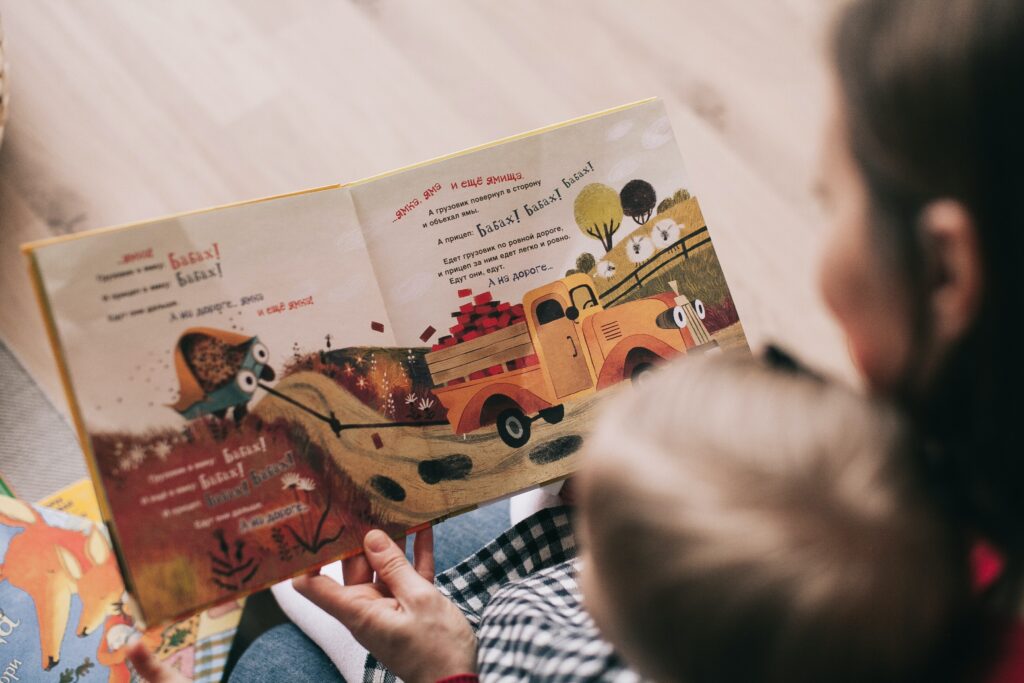Table of Contents
Introduction
Every child’s bedtime routine is filled with warmth, love, and imagination. One essential component of this routine is the bedtime story. Bedtime stories hold a magical power beyond entertaining children before they drift asleep. This article will explore bedtime stories’ incredible benefits and lasting impact on children’s development. Bedtime stories profoundly influence a child’s growth and well-being, from fostering creativity to nurturing empathy and building strong bonds.
The Importance of Bedtime Stories
Bedtime stories are not merely a source of entertainment; they play a vital role in a child’s development. Here are some reasons why bedtime stories are so important:
Stimulating Imagination
Bedtime stories transport children to imaginative worlds where anything is possible. Their imagination soars as they listen to the words and visualize the stories in their minds. This creativity helps in problem-solving, critical thinking, and developing a sense of wonder about the world.
Language and Vocabulary Development
Listening to stories exposes children to rich language and expands their vocabulary. Children encounter new words, expressions, and sentence structures through stories, enhancing their communication skills. Bedtime stories also improve listening comprehension by following the plot, characters, and dialogue.
Teaching Moral Values
Many bedtime stories carry valuable life lessons and moral values. Whether it’s the importance of kindness, honesty, or perseverance, these stories help children understand essential principles in an engaging and relatable way. Through storytelling, children learn valuable lessons that shape their character.
Emotional Intelligence and Empathy
Bedtime stories often portray diverse characters facing various emotions and challenges. By relating to these characters, children develop empathy and emotional intelligence. They learn to identify and understand different emotions, which helps them navigate their feelings and develop strong interpersonal skills.
Enhancing Cognitive Skills
Engaging stories stimulate a child’s cognitive development. They encourage active listening, concentration, and memory retention. Bedtime stories also expose children to different story structures, plotlines, and narrative techniques, fostering their analytical thinking abilities.
Bonding and Connection
The shared experience of reading bedtime stories creates a special bond between parents and children. It offers a calm and intimate setting where parents can connect with their children on a deeper level. Through storytelling, parents and children build trust, strengthen relationships, and create lasting memories.
Promoting Relaxation and Better Sleep
Bedtime stories have a soothing effect on children. As they listen to the gentle rhythm of their favorite stories, their minds relax, and their bodies prepare for sleep. The familiarity and comfort of the bedtime routine help children transition from a busy day to a peaceful night’s sleep.
Encouraging a Love for Reading
Regular exposure to bedtime stories nurtures a love for reading in children. They become eager readers as they develop a positive association with books and stories. This passion for reading enriches their lives and boosts their academic success and intellectual growth.
Choosing the Right Bedtime Stories
When selecting bedtime stories, consider your child’s age, interests, and developmental stage. Opt for stories that align with their current abilities and captivate their imagination. Choose books with vibrant illustrations, relatable characters, and engaging plots to engross your child.
Tips for Engaging Storytelling
To make bedtime storytelling sessions more captivating, here are some tips:
Use expressive voices and gestures to bring characters to life.
Pause strategically to build anticipation and allow children to engage in the story.
Encourage participation by asking questions, discussing the story, and inviting predictions.
Incorporate sound effects or props to make the story more interactive and immersive.
Create a cozy atmosphere with dim lighting and comfortable seating.
Creating a Bedtime Routine
Establishing a consistent bedtime routine is beneficial for both children and parents. A well-structured practice prepares children for sleep and helps them feel secure. It can include brushing teeth, changing into pajamas, reading stories, and sharing goodnight wishes.
Digital vs. Traditional Bedtime Stories
In today’s digital age, digital storytelling platforms and e-books have become increasingly popular. While they offer convenience and a vast stories library, traditional printed books hold their charm. It’s essential to balance digital and traditional storytelling, ensuring children experience the joy of having a book and turning its pages.
Conclusion
Bedtime stories hold a unique and magical power in shaping a child’s development. From sparking imagination and fostering empathy to enhancing language skills and strengthening bonds, these stories have long-lasting benefits. Embrace the tradition of bedtime storytelling, and create a treasured routine that will positively impact your child’s growth and well-being for years.
Frequently Asked Questions
Q: What age is suitable for bedtime stories?
A: Bedtime stories can be enjoyed from infancy to early adolescence. Adapt the content and complexity of the stories based on your child’s age.
Q: How long should a bedtime story be?
A: The length of a bedtime story can vary. Aim for stories that can be read within 10 to 15 minutes, allowing enough time for relaxation and winding down.
Q: Are there any specific genres that work best for bedtime stories?
A: While there are no strict rules, adventure, fantasy, and animal-themed stories are popular choices for bedtime reading. However, consider your child’s interests and preferences when selecting genres.
Q: Can I make up my own bedtime stories?
A: Absolutely! Creating your own bedtime stories can be an excellent way to personalize the experience and tailor the content to your child’s interests.
Q: Should I read the same story every night?
A: While repetition can comfort children, introducing new stories is also beneficial, helps expand their literary horizons, and keeps the bedtime routine fresh and exciting.




